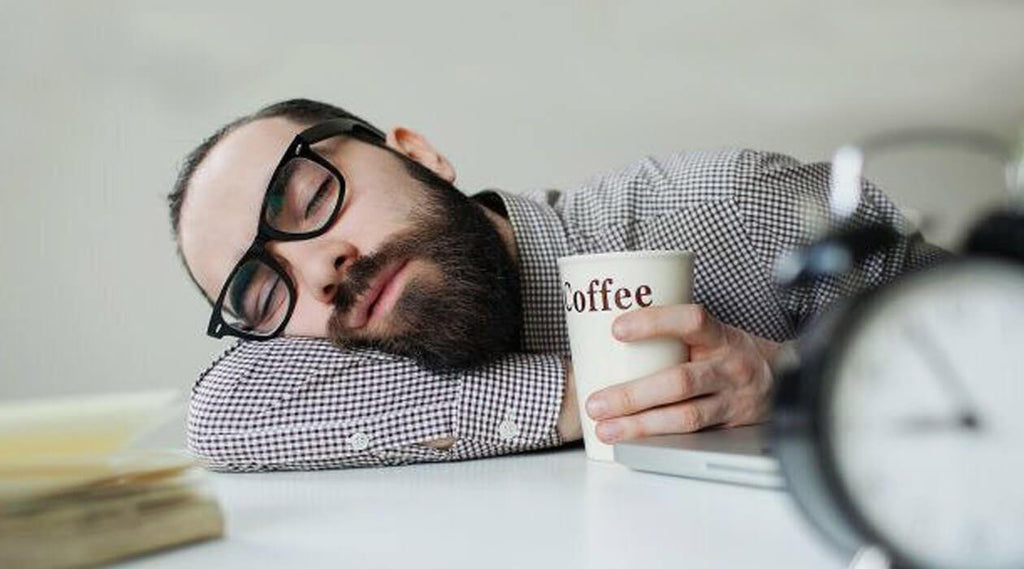Is oversleeping a thing?
Have you ever experienced the need for extra sleep, no matter how much rest you have? Do you feel like you sleep way too much? Like no one in your known would sleep for so many hours, and it is kind of scary now that no matter how much you sleep, you feel restless and in need of more sleep.
This condition is known as Hypersomnia or in layman’s terms oversleeping, excessive sleeping, sleeping too much, there’s no end to synonyms list.
Before defining Oversleeping, we shall have a look at the normal amount of sleeping hours:
| Age | Number of sleep hours per day |
| Toddlers | 11-14 hours |
| School-age children | 9-11 hours |
| teenagers | 8-10 hours |
| Adults | 7-9 hours |
| Seniors | 7-8 hours |
What is Hypersomnia?
Oversleeping or Hypersomnia is mere excessive daytime sleeping or an irregular amount of hours spent in the course of sleep. According to healthline.com, people with Hypersomnia may require 10-12 hours of daily sleep, even more.
Causes of oversleeping
There are many medical conditions that can cause oversleeping:
- Restless leg syndrome
- Sleep Apnea
- Thyroid Issues
- Narcolepsy
- Heart disease
- Depression
- Some medications
Oversleeping is known to affect about 2 percent of the global population. People with Hypersomnia won’t feel at rest at any time of the day because the condition demands a high amount of sleep hours per day, which is not feasible in the modern fast-past world where every second matters. You might not be able to meet your sleeping needs. This is why you might not feel refreshed or at rest throughout the day.
Read: Side effects of oversleeping
How to know if you are having Hypersomnia
People with Hypersomnia can experience certain symptoms such as:
- Anxiety
- Memory problems
- Less body energy
- Irritation
- Frequent alcohol and drug consumption
A doctor, after checking up on your current symptoms and performing a physical test of alertness, will decide whether you have Hypersomnia or not. Doctors track your sleeping and waking up time to have a track of your current sleeping scenario and judge your medical fitness on its basis. Sometimes they make you take a monitored nap where they check upon the intensity of sleep or even monitor your brain, eye movements and also heart rate while sleeping.
Who can be at risk of Hypersomnia?
Although Hypersomnia can happen to anyone, but a certain type of people is more prone to it:
- There is a study that shows that males are more prone to Hypersomnia than females
- People with frequent drug or alcohol consumption can have an effect similar to Hypersomnia
- People with the following conditions are at most risk for Hypersomnia:
- heart conditions,
- sleep apnea,
- brain conditions,
- kidney conditions,
- atypical depression, and
- low thyroid function
How to treat Hypersomnia?
Doctors, after diagnosing you with Hypersomnia, can prescribe some drugs such as antidepressants like Provigil and xyrem.
Most of the time, the medications can cause drowsiness and the feeling of immense tiredness. In such a scenario, please inform your doctor and ask him to change the medication to a less intense version.
A huge role in the treatment of Hypersomnia is played by some drastic lifestyle changes such as sleeping on a regular and a strict sleeping schedule and avoiding sleep inhabitants such as caffeine, alcohol etc. Cutting upon junk diet, alcohol, uses of drugs is also recommended in the Lifestyle change scenario.
Preventive measures for Hypersomnia
Currently, the research suggests no way to actually prevent the happening of Hypersomnia. Still, the chances can be reduced to a great extent by making the required lifestyle changes and build up a robust and disciplined sleeping schedule.
Final Word
You can be suffering from Hypersomnia too. People don’t generally become aware of Hypersomnia being a part of their life because it’s not posed such an issue. But if it increases in intensity, it can be a thing to worry about. Always keep a check upon your sleeping habits and schedule and check if you are being drowsy a little too much during odd times of the day or sleeping too much than the ideal number. If you think it is a bit more than required, start making changes to your lifestyle and also contact a doctor. It’s not dangerous but better safe than sorry.

